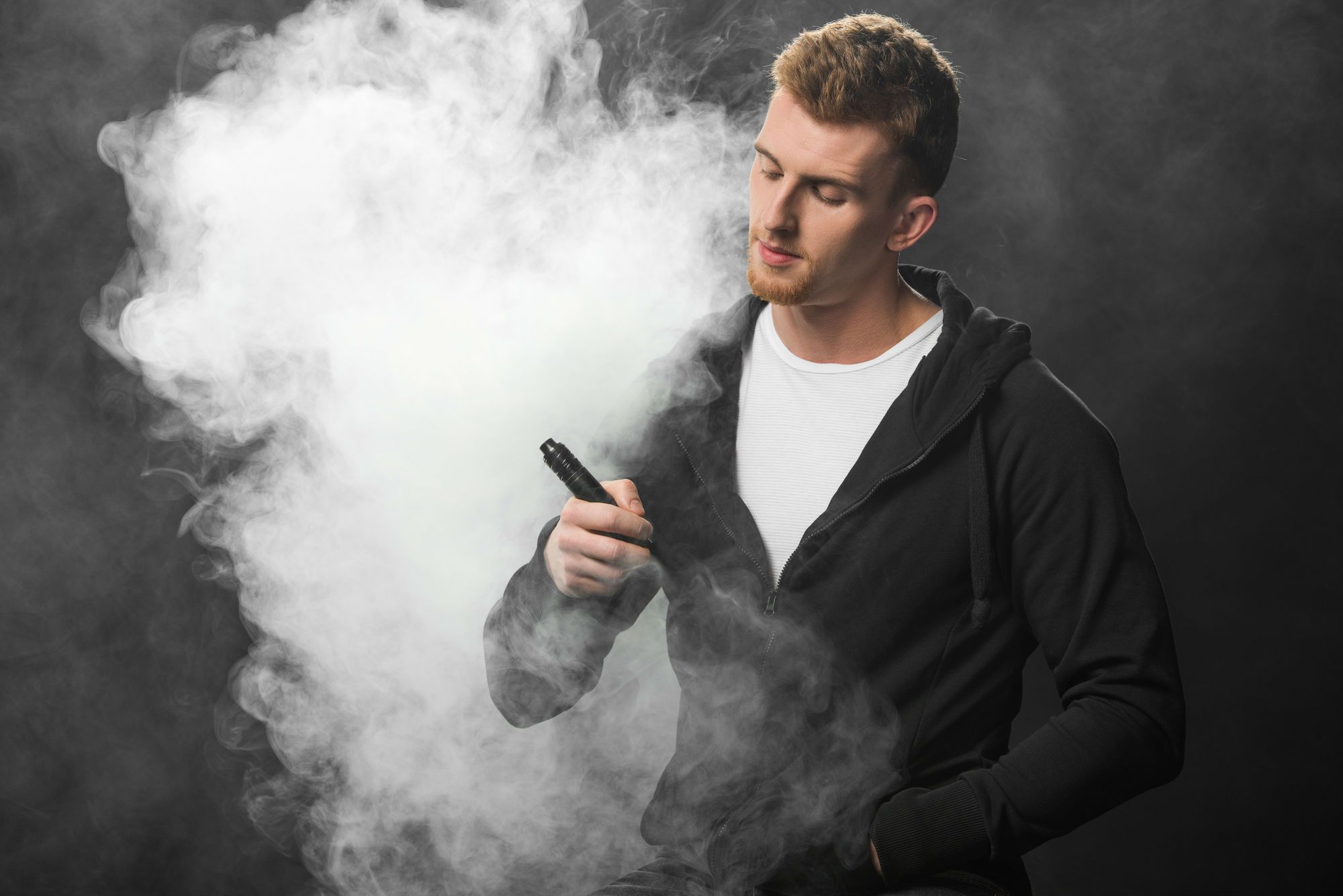Top Class Actions’s website and social media posts use affiliate links. If you make a purchase using such links, we may receive a commission, but it will not result in any additional charges to you. Please review our Affiliate Link Disclosure for more information.
Despite recreational marijuana being legal in California, a group of researchers recently published the results of a study linking the majority of vaping lung problems in the state with cannabis purchased on the black market, rather than through legitimate means.
Sinde August, more than 2,800 people have been hospitalized or died from e-cigarette, or vaping, product use-associated lung injury (EVALI), according to the U.S. Centers for Disease Control and Prevention (CDC). So far, 68 deaths have been confirmed. Emergency department visits from vaping lung problems appear to have peaked in September, and are now on the decline, the CDC reports.
The study, published on March 6 in JAMA Internal Medicine, looked specifically at California, which has one of the highest numbers of these cases.
Vaping Lung Problems
According to the study, which looked at 160 patients in California with vaping-related lung injuries, 71 of 86 patients reported vaping tetrahydrocannabinol (THC)-containing products; 36 reported using cannabidiol (CBD)-containing products; and 39 reported using nicotine-containing products.
For many of the people included in the study, their vaping-related lung injuries were quite severe. Some 46 percent required admission to the ICU, and 29 percent required mechanical ventilation. It should be noted that the majority of these patients were quite young — 74 percent under the age of 35.
Even though California has legalized recreational marijuana, a whopping 75 percent of these THC-containing products were reportedly obtained informally, from friends, acquaintances, or unlicensed retailers.
While 25 percent stated initially that they bought their vaping products through legal means, only one patient named a licensed retailer. The rest of the patients either could not name where they got their products, or ultimately admitted to buying the products from pop-up shops, individuals, or from brick-and-mortar stores that were not listed in the Bureau of Cannabis Control’s database of valid licensees.
This high percentage of informally-obtained THC products, the study noted, is similar to patterns seen across other states who have been affected or hospitalized by vaping-related lung injuries.
In addition, the researchers said, “most THC-containing products tested contained [vitamin E acetate], which has recently been identified in both clinical and product samples from patients with [vaping-related lung injuries].”
The CDC notes that Vitamin E acetate “has not been found in the lung fluid of people that do not have EVALI,” though this is not enough evidence to rule out the possibility that other chemicals might contribute to the rise in vaping lung problems.
The CDC and the Food and Drug Administration (FDA) previously issued a public health advisory urging people to refrain from vaping products containing THC while the investigation into vaping-related lung injuries continues, and now in particular, to avoid these THC products obtained from informal sources.
The CDC also notes that vaping products, regardless of whether they contain nicotine or THC, should “never be used” by youths, young adults, or pregnant women.
“The best way to avoid potentially harmful effects,” the CDC says, “is to not use THC-containing e-cigarette, or vaping, products.”
The risk of vaping lung problems is especially serious given the ongoing increase in young people using of e-cigarette products. The CDC reports an increase of about 1.5 million e-cigarette users among youth in 2018 compared to 2017.
Among high school students, e-cigarette use reportedly increased by 78 percent, and among middle school students, by about 48 percent. More than 5 million middle and high school students use e-cigarettes, and nearly 1 million are reportedly daily users.
Filing a Vaping Lung Problems Lawsuit
If you or someone you love has suffered vaping lung problems, you may be able to file a lawsuit and pursue compensation. Of course, filing a lawsuit cannot take away the pain and suffering caused by these complications, nor can it bring a loved one back to life, but it can at least help alleviate the financial burden incurred by medical expenses, lost wages, and more, as well as hold those responsible accountable for their actions.
Filing a lawsuit can be a daunting prospect, especially while dealing with serious health complications, so Top Class Actions has laid the groundwork by connecting you with an experienced attorney. Consulting an attorney can help you determine if you have a claim, navigate the complexities of litigation, and maximize your potential compensation.
Join a Free E-Cigarette Heart & Lung Lawsuit Investigation
If you or a loved one developed heart or lung problems after using e-cigarettes containing nicotine and/or THC, you may qualify to join this e-cigarette lung injury lawsuit investigation.Learn more by filling out the form on this page for a free case evaluation by a JUUL e-cigarette injury lawyer.
ATTORNEY ADVERTISING
Top Class Actions is a Proud Member of the American Bar Association
LEGAL INFORMATION IS NOT LEGAL ADVICE
Top Class Actions Legal Statement
©2008 – 2024 Top Class Actions® LLC
Various Trademarks held by their respective owners
This website is not intended for viewing or usage by European Union citizens.
Get Help – It’s Free
Join a Free E-Cigarette Heart & Lung Injury Lawsuit Investigation
If you qualify, an attorney will contact you to discuss the details of your potential case at no charge to you.
PLEASE NOTE: If you want to participate in this investigation, it is imperative that you reply to the law firm if they call or email you. Failing to do so may result in you not getting signed up as a client or getting you dropped as a client.
E-mail any problems with this form to:
Questions@TopClassActions.com.














